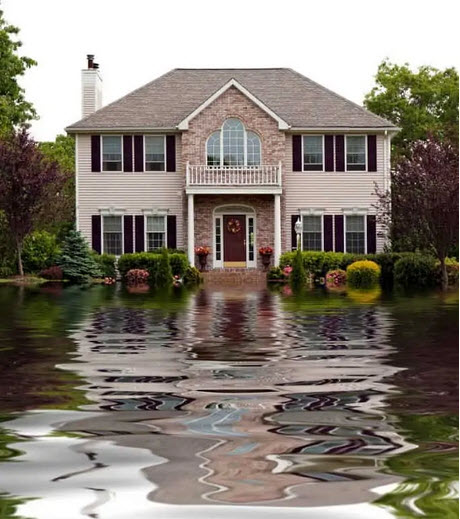Water Damage Cleanup Service
Water Damage Cleanup

Your flood insurance coverage will only pay for damage to your property that was caused directly by a flood. Other types of insurance, such as homeowner's insurance, do not cover damage brought on by flood water but do cover damage brought on by other types of hazards, such as intense rainfall or fire. If a river overflows or rain generates a flash flood that penetrates your property, this is regarded to be a direct effect of the flood, and it is likely that your flood insurance will cover the costs associated with it. However, if the rain is blown into a building that is sheltered from the wind, this type of precipitation is known as wind-driven rain and is not covered by your flood insurance. If your roof is broken in any way and water is able to leak through the roof, the same thing will happen. Your flood insurance will not pay for this type of damage since it was caused by water that was damaged by the wind.
Because we have more than 20 years of expertise in this industry, we are able to swiftly determine the extent of the damage caused by the fire and smoke and locate the solutions that are both the quickest and most effective.
Mold, rats, and insects are the most common culprits in the destruction of library and archival collections; however, dogs, cats, birds, and people are all responsible for this kind of damage. Damage caused by mold may be a significant risk, particularly for buildings situated in regions that are hot and humid or in close proximity to big bodies of water that have a high relative humidity. Mold spores are abundant in the environment. Damage caused by mold may be quite costly, therefore it is essential to take precautions to avoid getting it in the first place. The most critical procedures are to ensure that the temperature and relative humidity levels are maintained at appropriate levels, that there is enough air circulation, and that storage rooms are kept clean and clear of clutter. In an ideal world, the temperature shouldn't ever get higher than 70 degrees Celsius, and the relative humidity shouldn't ever go higher than 50 percent. The likelihood of mold growth increases in proportion to both the temperature and the relative humidity of the environment. In the event that there is a situation that involves water, such as a flood or a fire, anything that become wet should be removed as soon as possible, before mold or mildew may begin to form.
When discussing the repercussions of fire damage, many people have a tendency to focus on the most visible consequences. However, there may also be less evident issues that leave their imprint after the clean-up and reconstruction processes have been completed. It is possible that as a result of this, your home is no longer safe to live in, or that specific components of the property may be damaged in the future, thus necessitating more repairs. When you put out a fire in your house, there is a chance that the water used can cause water damage to your property and valuables. This is something that has to be stated.
In addition to the damage that was caused directly, there is probably water flowing from the sprinkler system at the enterprise or the efforts of the fire department. In such situation, you will require the services of our water damage restoration company to remove the mold and to halt the degradation of flooring, walls, and attics that have not yet been harmed (this is required by your insurance company!). Our services can be found here.
We have a team of qualified professionals located all over the country that are able to do expert property restoration services. You can put your faith in the fact that our specialists have seen it all and will solve the problem in a timely and effective manner, whether it be smoke damage, water damage, fire damage, or an infestation of mold.
Water Damage Cleanup Service